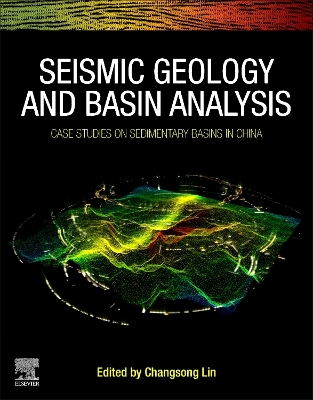Earthquake Hazards
 -10%
portes grátis
-10%
portes grátis
Earthquake Hazards
Risk Assessment and Mitigation
Sorkhabi, Rasoul
Elsevier Science & Technology
12/2099
300
Dura
Inglês
9780323916677
Pré-lançamento - envio 15 a 20 dias após a sua edição
Descrição não disponível.
Part I. Topical and Methodological 1. Earthquake Hazard Science: A Historical Perspective 2. Remote Sensing for Disaster Response: A Rapid, Image-Based Perspective 3. The Capabilities of Earth Observation to Contribute along the Risk Cycle 4. Ten Years of Real-Time Earthquake Loss Alerts 5. Forecasting Seismic Risk as an Earthquake Sequence Happens 6. The Socioeconomic Impact of Earthquake Disasters 7. The Contribution of Paleoseismology to Earthquake Hazard Evaluations 8. The Role of Microzonation in Estimating Earthquake Risk 9. Why are the Standard Probabilistic Methods of Estimating Seismic Hazard and Risks Too Often Wrong 10. The Continued Utility of Probabilistic Seismic-Hazard Assessment 11. Precarious Rocks: Providing Upper Limits on Past Ground Shaking from Earthquakes 12. Quantifying Improvements in Earthquake-Rupture Forecasts through Testable Models 13. Times of Increased Probabilities for Occurrence of Catastrophic Earthquakes: 25 Years of Hypothesis Testing in Real Time 14. To What Extent Can Engineering Reduce Seismic Risk? 15. Decision Making under Uncertainty: Insuring and Reinsuring Earthquake Risk 16. On synergies among learning from earthquakes and tsunami disasters and development of ocean industries Part II. Countries and Case Studies 17. Review of the Nationwide Earthquake Early Warning in Japan during Its First Five Years 18. The Most Useful Countermeasure Against Giant Earthquakes and Tsunamis - What We Learned from Interviews of 164 Tsunami Survivors (Japan) 19. The Experience of Real-Time Earthquake Predictions on Kamchatka 20. Duties of Earthquake Forecast: Cases and Lessons in China 21. 10-year Post-Wenchuan Earthquake Lessons: Short-Term Built Environment Reconstruction and Long-Term Social Recovery 22. How to Render Schools Safe in Developing Countries? (Nepal) 23. Aggravated Earthquake Risk in South Asia: Engineering versus Human Nature 24. A Twenty-first Century Requiem for Earthquake Hazard Risk Mitigation in Contemporary Iran 25. Earthquake hazard, risk and risk mitigation in Turkey 26. Earthquake hazard assessment and mitigation in Armenia 27. The Assessment of Earthquake Hazard in Italy in View of the Building Code 28. Earthquake risk assessment and mitigation in Mexico City 29. Ground-motion modeling and earthquake hazard mapping in California (Added from reviewer feedback) 30. Disaster-Risk Reduction Through the Training of Masons and Public Information Campaigns: Experience of SDC's Competence Centre for Reconstruction in Haiti 31. Earthquake hazard assessment and mapping in New Zealand (Added from reviewer feedback) 32. Synthesis: Lessons Learned
Este título pertence ao(s) assunto(s) indicados(s). Para ver outros títulos clique no assunto desejado.
Natural hazards; Earthquake; Seismology; Geophysics; Risk Assessment; Disaster Mitigation; Hazard Preparedness
Part I. Topical and Methodological 1. Earthquake Hazard Science: A Historical Perspective 2. Remote Sensing for Disaster Response: A Rapid, Image-Based Perspective 3. The Capabilities of Earth Observation to Contribute along the Risk Cycle 4. Ten Years of Real-Time Earthquake Loss Alerts 5. Forecasting Seismic Risk as an Earthquake Sequence Happens 6. The Socioeconomic Impact of Earthquake Disasters 7. The Contribution of Paleoseismology to Earthquake Hazard Evaluations 8. The Role of Microzonation in Estimating Earthquake Risk 9. Why are the Standard Probabilistic Methods of Estimating Seismic Hazard and Risks Too Often Wrong 10. The Continued Utility of Probabilistic Seismic-Hazard Assessment 11. Precarious Rocks: Providing Upper Limits on Past Ground Shaking from Earthquakes 12. Quantifying Improvements in Earthquake-Rupture Forecasts through Testable Models 13. Times of Increased Probabilities for Occurrence of Catastrophic Earthquakes: 25 Years of Hypothesis Testing in Real Time 14. To What Extent Can Engineering Reduce Seismic Risk? 15. Decision Making under Uncertainty: Insuring and Reinsuring Earthquake Risk 16. On synergies among learning from earthquakes and tsunami disasters and development of ocean industries Part II. Countries and Case Studies 17. Review of the Nationwide Earthquake Early Warning in Japan during Its First Five Years 18. The Most Useful Countermeasure Against Giant Earthquakes and Tsunamis - What We Learned from Interviews of 164 Tsunami Survivors (Japan) 19. The Experience of Real-Time Earthquake Predictions on Kamchatka 20. Duties of Earthquake Forecast: Cases and Lessons in China 21. 10-year Post-Wenchuan Earthquake Lessons: Short-Term Built Environment Reconstruction and Long-Term Social Recovery 22. How to Render Schools Safe in Developing Countries? (Nepal) 23. Aggravated Earthquake Risk in South Asia: Engineering versus Human Nature 24. A Twenty-first Century Requiem for Earthquake Hazard Risk Mitigation in Contemporary Iran 25. Earthquake hazard, risk and risk mitigation in Turkey 26. Earthquake hazard assessment and mitigation in Armenia 27. The Assessment of Earthquake Hazard in Italy in View of the Building Code 28. Earthquake risk assessment and mitigation in Mexico City 29. Ground-motion modeling and earthquake hazard mapping in California (Added from reviewer feedback) 30. Disaster-Risk Reduction Through the Training of Masons and Public Information Campaigns: Experience of SDC's Competence Centre for Reconstruction in Haiti 31. Earthquake hazard assessment and mapping in New Zealand (Added from reviewer feedback) 32. Synthesis: Lessons Learned
Este título pertence ao(s) assunto(s) indicados(s). Para ver outros títulos clique no assunto desejado.






